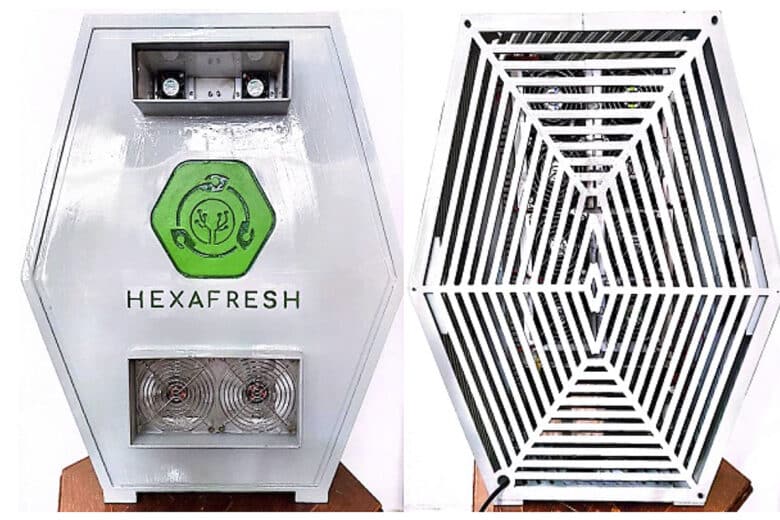Every morning around the world, as the sun rises, a person wakes up and knows that they will have to outrun the heat wave, or they will be killed. Every morning around the world, as the sun rises, a heat wave wakes up and knows that it will have to run faster than the air conditioner, or it will not be able to make a person sweat. Whether you are a heat wave or a person, air conditioning can make a difference.
And the environment? With red-sticker days and temperatures above 40°C, some cities even encourage residents to cool off in museums or air-conditioned shopping centers to avoid heatstroke. This does not change the reality of the facts: the consequences of excessive use of air conditioning, both in homes and in cars, are disastrous. They consume gas, produce harmful emissions and make us consume more fuel.
We should do without it. And end up like the gazelle…er, the person. Or hope that something like this will be on the market soon Hexafresh, an air conditioner that has negligible cost and consumption.

Where did this invention come from?
The invention of this new device comes from two French-Lebanese entrepreneurs. It is a unique fan that cools without consuming much energy: 80% less than traditional air conditioning. The French startup worked hard to create an air conditioner that had operational effectiveness and environmental "appeal".
The "individual cooling fan" invented by the start-up has the power to cool the air without emitting CO2 and with acceptable consumption. In fact, it is the application of a well-known phenomenon, thePeltier effect created by the movement of energy in the form of heat. To date it has been used for rapid cooling of beverages (in just 5 seconds), or for “t-shirt” air conditioners like the Sony Reon Pocket.
The keystone of Hexafresh is in its distribution "where needed" on small areas. The device manages to lower an area of approximately 10 square meters by 1,5°C.
An armchair or desk air conditioner
In summary: low consumption, low cost, small cooled areas, and dehumidifier. It seems like a small turning point: when does it arrive? In France the patent is pending validation, and the patent is being tested. It will arrive on the market in 2023. What should I do in the meantime? Do I turn on?


